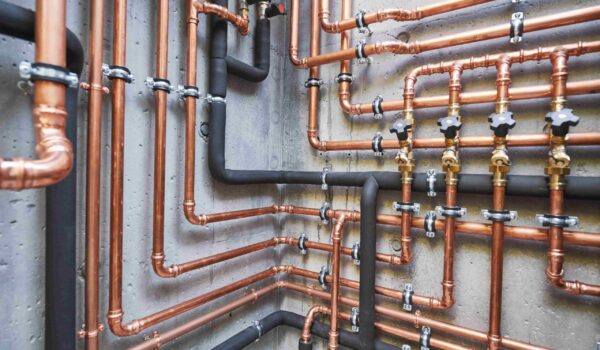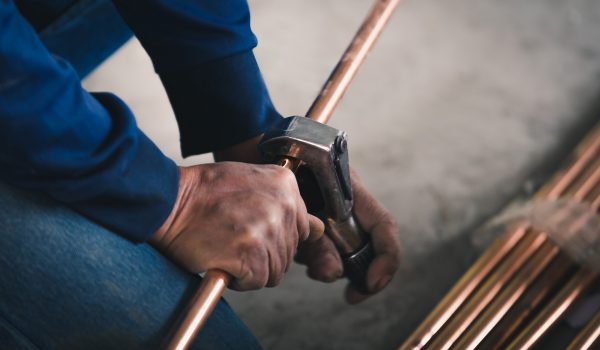On 25 and 26 January, the CuSP team attended the BSS Conference at Wembley Stadium in London.
Organised by BSS Industrial, the UK’s leading distributor of pipeline and heating materials, the conference was an opportunity for members of the plumbing industry to get together, exchange ideas and exhibit new products.
This year, the theme of the conference was ‘Sustainability’ — a perfect fit for CuSP. Along with taking a stand in the exhibition marketplace, we also delivered a seminar session on the sustainability and safety credentials of copper.
Here are our key takeaways from the event.
The importance of sustainable materials
Copper has long been a staple material in the construction industry, though the emergence of PVC pipes in the 1960s has altered the status quo. Today, many plumbers and homeowners opt for plastic pipes because they are often cheaper to install than copper pipes.
The popularity of plastic pipes is a growing cause for concern. In the past two years, plastic waste in the construction industry has increased by over 45%, with 40% of the plastics used by the industry sent to landfill.
Despite plastic piping being marketed as recyclable, the reality is that most plastic pipes are not recycled. Copper plumbing pipes, on the other hand, can be recovered from old buildings and then recycled infinitely without any loss of quality.
With the climate crisis worsening, it’s now more important than ever to switch to sustainable materials. New research from Copper Alliance indicates that plastic multilayer (PEX/AL) and plastic cross-linked polyethylene (PEX) pipes impacted global warming 18% more across their lifecycle than copper pipes.
Learn more about the sustainability credentials of copper pipes below.
The role of copper in fire safety
Another important reference point in the debate between copper vs plastic pipes is fire safety. Copper is well known for its thermal resilience and has an ability to withstand fluctuating temperatures. As a result, it won’t melt, burn or give off toxic fumes in a building fire.
Plastic has a significantly lower combustion point than copper and is likely to melt in the event of a fire. In addition, some studies have found that plastic pipes release carcinogenic toxics when burnt. It’s one of the main reasons why cancer rates in the firefighting profession are on the up.
Learn more about the role of copper in fire safety below.
The continued threat of greenwashing
One thing that stood out to us was the number of companies that were brushing over the environmental issues of their products at an event focusing on sustainability. It’s indicative of an industry where greenwashing continues to be a major issue.
Whether it was focusing on their small range of metal products and including no mention of their plastic range, using games or giveaways (made of plastic!) as a distraction or simply not mentioning sustainability on their stand at all, it was disappointing to see so many companies gloss over the issue of plastic pollution.
As the climate emergency worsens, events like this are so important in raising awareness about how the construction industry can improve its sustainability. The time has come for us to properly prioritise sustainability and copper is the perfect, professional solution.
Learn more about plastic greenwashing below.

